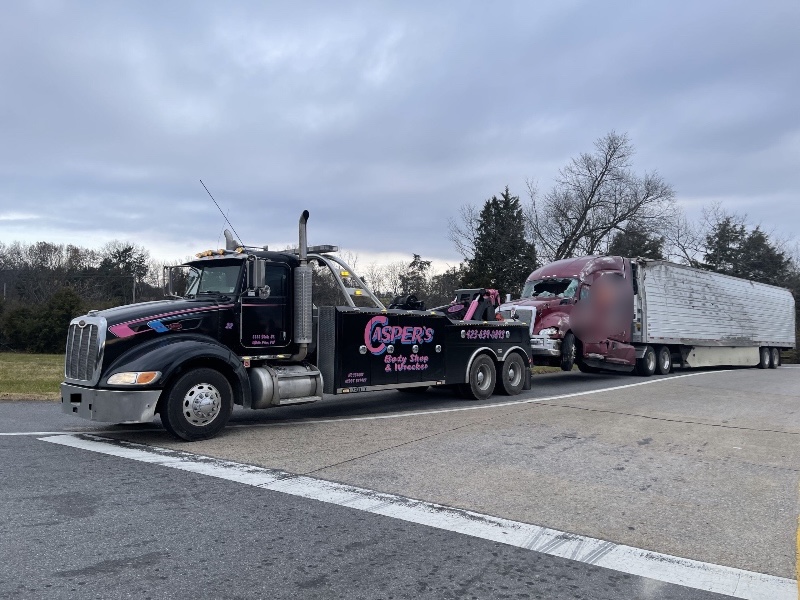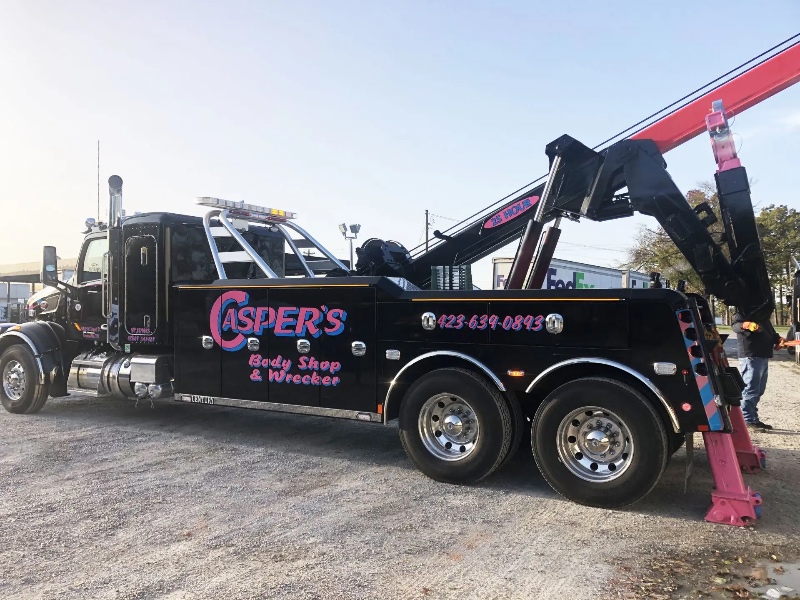How to Stay in Shape
One of the biggest challenges facing truckers is dealing with a truck that has jackknifed. Jackknifing is dangerous and can cause serious accidents. An I-81 heavy recovery often involves navigating around jackknifed trucks, highlighting the importance of prevention. It can happen in a split second, turning a regular trip into a nightmare. So, how can drivers avoid this risky situation? Here are our top three tips to help prevent jackknifing and keep everyone safe on the road.

Tip 1: Manage Your Speed
Speed plays a major role in jackknifing. Driving too fast, especially on curves or downhill stretches, makes it harder to control the truck.
Adjust Your Speed According to Conditions
We always recommend adjusting speed to match road conditions. Wet or icy roads make it much easier for a truck to lose traction. If you’re driving at high speeds, you’ll have less time to react if something goes wrong. Slow down when the weather is bad, and always take turns carefully. Remember, maintaining control is the key to preventing jackknifing.
Avoid Sudden Braking
Sudden braking is one of the most common causes of jackknifing. When a driver slams on the brakes, the trailer’s momentum can cause it to swing out of line with the cab. To avoid sudden stops, keep a safe distance from other vehicles and brake gradually.
Tip 2: Check Your Load
The way a truck is loaded has a big impact on its stability. An uneven load can cause the trailer to sway, especially in windy conditions or on sharp turns.
Balance Your Load Properly
Make sure the cargo is distributed evenly throughout the trailer. An unbalanced load can make a trailer more likely to swing out, increasing the risk of jackknifing. Always double-check the weight distribution before setting out and ensure that the heaviest items are placed low and centered.
Secure the Cargo
Securing your load is just as important as balancing it. Loose cargo can shift during transport, throwing off the trailer’s balance. Use proper restraints and check them regularly to ensure nothing has moved. Remember, a well-secured load is a safe load.
Tip 3: Keep Up with Regular Maintenance
A well-maintained truck is less likely to jackknife. Equipment in good condition helps you stay in control.
- Check Your Brakes: Ensure that brakes are working properly and that the brake pads are not worn. Faulty brakes can increase the risk of skidding and jackknifing.
- Inspect Tires Regularly: Tires should have enough tread and the correct air pressure. Bald tires can easily lose traction on slippery surfaces.
- Maintain Suspension Systems: A good suspension helps keep the trailer stable, even on bumpy roads.
Regular inspections and maintenance checks can help catch potential issues before they turn into big problems. It’s always better to address small issues in the garage than face them on the highway. We wouldn’t want a routine trip to turn into an I-81 heavy recovery situation.

Casper’s Wrecker: We’re Here to Help
At Casper’s Wrecker, we know the risks that come with trucking. Our team handles I-81 heavy recovery situations all the time and understands how quickly a jackknife can turn into a serious hazard. We’ve seen firsthand how unexpected weather, or a sudden stop can lead to an I-81 heavy recovery situation for us. That’s why we stress the importance of proper load balance and regular maintenance to prevent these incidents. An I-81 heavy recovery is about clearing the road and keeping everyone safe and minimizing disruptions. By following these tips, you can reduce the chances of needing an I-81 heavy recovery service. But if you ever find yourself in a tough spot, remember that we’re just a call away, ready to help get you back on the road. At Casper’s Wrecker, we are committed to providing fast, reliable I-81 heavy recovery whenever you need it. Stay safe, and drive smart!
